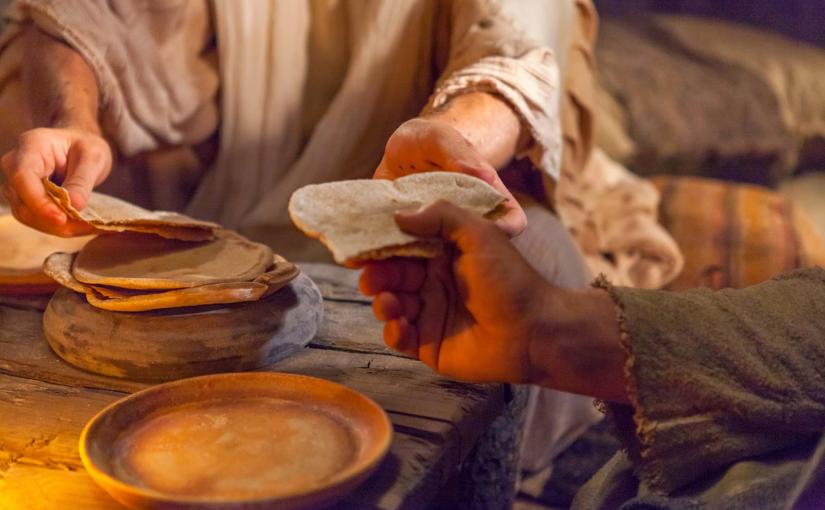By: Rev. Lorraine E. Leist, MDiv, BCC
John 15:12-13, 15
“This is my commandment, that you love one another as I have loved you. No one has greater love than this, to lay down one’s life for one’s friends. […] I do not call you servants any longer, because the servant does not know what the master is doing; but I have called you friends.”
I am a fan of dinner church. I love the tradition we have started at First Cong where we gather as an intergenerational community to break bread and embody Jesus, bringing our light and love to one another over our shared commitment to being Christian community. I love that together we are friends.
At Christmas we are reminded through the birth of the Jesus that God is with us. Jesus is our Emmanuel. This is our invitation to believe that God has joined us in the human condition. God is with us in our joys and sorrows. God is here, leading us on in our pursuit of justice and accompanying us in our hope for healing. And yet, Jesus as the incarnation of God can still seem separate from us. We think of Jesus as the model for how to live good lives as Christian people. But what if Jesus was more than just an image of how we ought to be, but rather a friend who comes alongside of us to accompany us as we journey through our lives.
Recently I read a book that was given to me by a friend. Given Up for You: A Memoir of Love, Belonging, and Belief by Erin O. White. In it, she offers a powerful image that has lingered with me. She says,
“I was sitting alone on the edge of my futon and suddenly Jesus was next to me, right there on the edge of my futon, and he was wearing the softest flannel shirt in the world. His hands were rough, and his voice was warm and low, and for the moment he spent with me, he was extraordinarily good company.”
Unlike the vision of Jesus in flowing robes teaching and healing the masses, this image makes Jesus real to me. It is the incarnational vision of Jesus in the here and now. Clad in flannel with hands callused from doing the saving work of this world, Jesus is right there with me. He is my companion who speaks to me in a comforting voice, offering his love by his presence.
In John 15, Jesus commands the disciples to love one another just as Jesus has loved them. He then changes the nature of their relationship by saying they are no longer servants, but rather his friends. Just as with dinner church, Jesus invites the disciples to the table to break bread and share blessings with one another. In so doing he transforms our understanding of God again. Jesus is no longer just a babe in the manger, or healer restoring life, or prophet speaking truth to power. It turns out that God is now with us at the table, showing up in flannel and proving to be extraordinarily good company.




